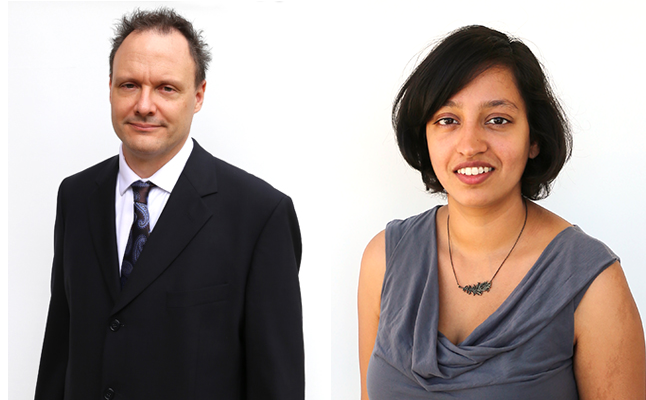Google Awards Research Funding to Two Faculty

March 28, 2019 - Google has named two faculty members from the Samueli School’s Department of Electrical Engineering and Computer Science as winners of its Google Faculty Research Awards. The highly competitive awards – only 15 percent of applicants are funded – support promising academic research projects in computer science, engineering and related fields.
EECS Professor Brian Demsky and Assistant Professor Aparna Chandramowlishwaran each won funding that will support one graduate student for a year.
Demsky, whose award was in the area of software engineering and programming languages, also researches software reliability and compilation. His project, Scaling Testing of Concurrent Code to Real Software Systems, seeks to develop systematic testing tools that can scale for real-world applications. “Researchers have developed tools for model-checking small test cases under the C/C++ memory model, which cannot scale beyond unit tests of data structures, and tools that support random testing, which may not drive executions to reveal bugs,” Demsky says. “There is a need for tools that fill the gap.”
Chandramowlishwaran, who won her award in the area of mobile, researches high-performance computing, domain-specific compilers, algorithm-architecture co-design, data analysis and scientific computing. Her Scalable Tools for Profiling Web Browsers project seeks to develop a profiling tool that can effectively analyze performance and energy efficiency of web browsers. “Web browsers are becoming increasingly complex and have large codebases consisting of millions of lines of code,” Chandramowlishwaran says. “This project aims to ... develop a causal profiling tool to capture the dependencies in a web browser that allow for scalable analysis in order to identify performance bottlenecks.”
The Google Faculty Research Awards Program seeks to support world-class faculty pursuing cutting-edge research with a goal of identifying and strengthening long-term collaborative relationships with faculty working on problems that will impact how future generations use technology.
- Anna Lynn Spitzer
